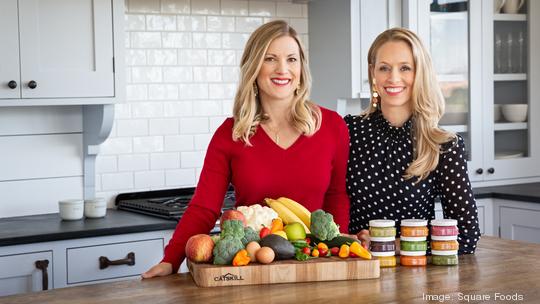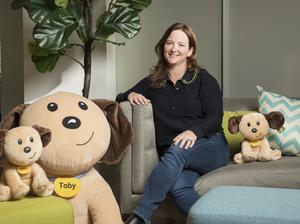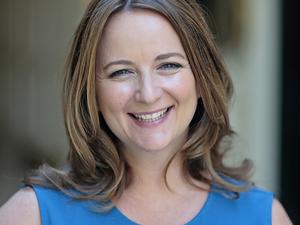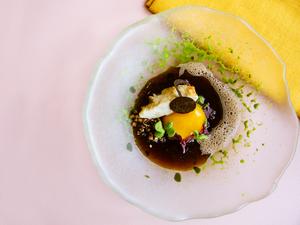
Tired of seeing overly sweet, fruit-heavy baby food on the shelves at her local grocery store, Katie Thomson decided to formulate her own — and she had the know-how.
Originally pre-med at the University of Oregon, Thomson realized that she was more interested in nutrition and went on to earn a master's degree in nutritional sciences from the University of Washington.
During that time, Starbucks hired her to work on what was supposed to be a three-week project assessing the nutritional content of the coffee chain's beverages. She ended up staying for over five years as the company's first in-house nutritionist.
Then in 2013, she moved to Orinda with two young kids and met Kendall Glynn, a geneticist, though a local moms group. Within a few years, they decided to start a food company that would prioritize balanced nutrition for children, starting with infants.
"I started to see more and more misleadingly marketed products, especially the new pouches that were starting to come on the market,” Thompson said. “They had kale and quinoa and they had started to figure out how to innovate past the Gerbers and these jars that had been a stagnant category. But instead of nutrition really being first, I found that marketing came first."
Founded in 2018, Square Foods is a subscription box service that delivers pre-made meals for infants every two weeks under the brand Square Baby. Parents can order between 14 and 56 jars of food per box, which works out to one to four meals per day, and everything is shipped frozen.
Thomson is CEO and formulates the meals so that they will meet 100% of an infant's dietary needs with two to three jars, which are priced around $5 per jar with discounts for larger orders. A two-week supply starts at $79 for 14 jars of food, and the largest box containing 56 meals costs $279, according to the website.
And the meals are group into three categories — a system they call ABC. The first group, A, are meals that have dairy. B meals are vegan, and C meals have animal protein.
They wanted to make the service simple and customizable while also providing options for various dietary needs and preferences.
"Part of our mission with inspiring healthy eaters for life is really meeting families where they are," Glynn told me. "With our vegan families, we love being able to provide nutrient dense meals so they feel like they don't have to compromise or someone's shaming them for not eating meat. We're never going to be the trend following company but we really pride ourselves on being a resource for families."
Behind the scenes, they formulate around three main tenets: balanced, science based nutrition; palate development (incorporating different textures and flavors through spoon feeding); and safe introduction of common allergens.
They also take gut health into account. For example, beans and cauliflower can cause gassiness in infants from 6 to 8 months old, so meals for that age range incorporate lentils, instead, Thomson told me.
Up until recently, Square Baby meals were manufactured in small batches and frozen in a local commercial kitchen, but the company is scaling up and switching to a larger production facility as it prepares to relaunch the brand nationally in a few months. It currently focuses on serving customers on the West Coast.
The company is projecting 10x growth this year, and Thomson told me she anticipates reaching profitability in 18 months. They have raised $1.3 million in seed funding over a few rounds since 2018.
Getting there has been hard, as they expected it to be. The odds are generally stacked against female founders who tend to only capture around 2% of all venture funding in the U.S. annually.
They've pitched to investors over 100 times since founding the company, but their goal has been building long-term relationships with most of the investors while raising just enough capital and focusing on sustainable growth.
"For us, the right path was not growth for growth's sake," Thomson said. "We're growing this company the way that we want to in a really capital efficient way in which we own a majority of the company still."
Thomson also expects an exit at some point that creates value for all of their stakeholders.
"At some point it'll grow beyond us," Thomson said, but "we're not beholden to any certain path because of the decisions that we've made to get to this point."
Over the next 12 to 24 months, they will be looking into developing additional product lines that cater to the nutritional needs of older children, as well.
They have a lean team of four employees right now, as well several contractors that help with things like the website, legal and accounting. And Thomson wants to hire more people to work in operations and marketing as they gear up for the company's national expansion.






